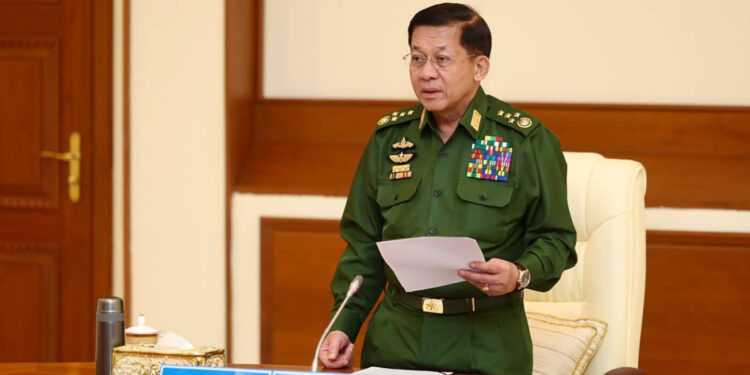Myanmar’s military junta Senior General Min Aung Hlaing has officially ended the state of emergency that had been in place since the 2021 coup, signaling a shift towards the long-promised elections.
The junta, led by Senior General Min Aung Hlaing, confirmed that the election is scheduled for December 2025 or January 2026. This marks a significant move after nearly four years of military rule, with the junta asserting that the elections will pave the way for a “peaceful transition” to civilian governance, reports Bloomberg and Irrawaddy.
However, with the lifting of the emergency, the junta remains in full control, retaining the power to oversee the entire election process.
Despite the official announcement, the decision has raised skepticism both domestically and internationally. Political opposition groups, including the National Unity Government, have dismissed the upcoming polls as a mere attempt to legitimize military rule. Critics argue that, with many key political parties banned, the election is unlikely to offer a fair transition to democracy. Additionally, the junta’s tight grip on power continues, with Min Aung Hlaing maintaining his position as both president and head of the armed forces during the transition period, further undermining the legitimacy of the process.
The lifting of the state of emergency comes amidst ongoing conflict across Myanmar. Resistance groups continue to challenge the junta’s authority in multiple regions, and the country is deeply divided as the military fights to consolidate control. The announcement of the election has been criticized as out of touch, especially given the devastation caused by a recent earthquake that left thousands dead and millions displaced.
The decision to push forward with elections has also sparked concerns about the junta’s true intentions. International observers have warned that the military may seek to use the election as a tool to solidify its power rather than restore civilian rule.
With many opposition groups calling for a boycott, the upcoming elections remain a highly contentious issue. The international community, including ASEAN and the United Nations, is closely monitoring the situation, with many expressing doubt over the possibility of a free and fair election in the current political climate.


